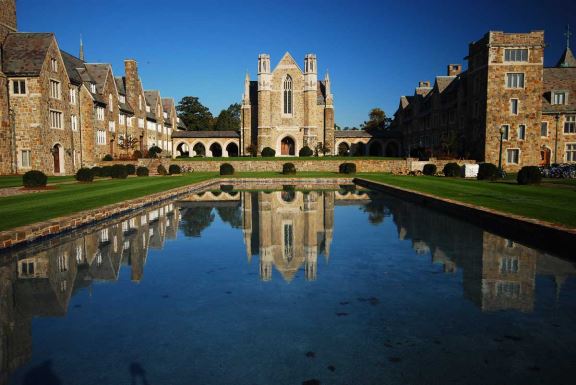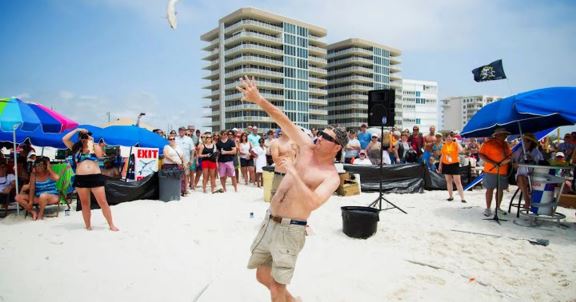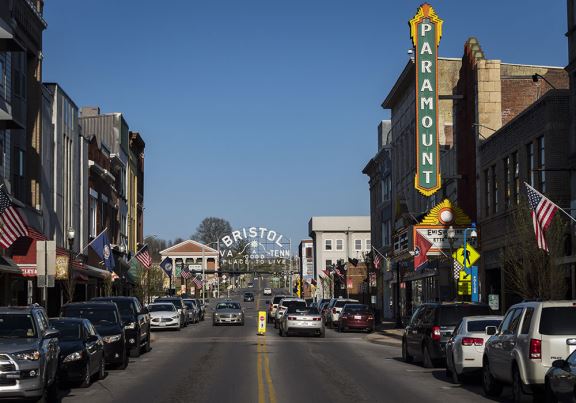Southern Wonders and Curiosities
Collected by Gary Wright
“I done seen ‘bout everything when I saw an elephant fly,”
— From Walt Disney’s movie, ‘Dumbo’
The American South is home to many large and small wonders; its colors and hues are painted, but never copied perfectly, by some of the world’s greatest painters. The sounds of its backwoods, streams, mountains, and hollers have been the source of music: country, bluegrass, jazz, and folk. Its people speak the same language but verbalize it so much differently from place to place, that the resonance has become a sing-song virtuoso of sound delight. Indulge me as I recognize some of the South’s lesser-known places, events, and people.
1914 saw the first female rural mail carrier in the United States, Mrs. Mamie Thomas. She delivered mail by buggy to the area southeast of Vicksburg, Mississippi.
The World’s Championship Duck Calling Contest, held annually in Stuttgart, Arkansas, was named after the capital of the Kingdom of Wuttermburg, by Stuttgart’s founder, German native Reverend Adam Burkle.
At the Battle of Mobile Bay, on August 5, 1864, Admiral David Farragut issued his famous command, “Damn the torpedoes, full speed ahead.” At the time, torpedoes referred to floating mines, not the powered torpedo of today.

Berry College in Rome, Georgia has the world’s largest college contiguous campus, comprising over 27,000 acres. Berry College has been rated one of the best private colleges in the United States.
Louisiana is the only state that still rules under the Napoleonic code of law, which derives from the original French emperor’s civil code. It is also the only state that has no counties—its parish system is also based on the French civil body which came out of the old Catholic Church parish system.
North Carolina’s Outer Banks is known as the “Graveyard of the Atlantic,” for good reason. Due to frequent and regular hurricanes, along with the meeting of the Gulf Stream and Labrador Currents, the state’s 200-mile string of barrier islands has been the site of more than 5,000 shipwrecks. Cape Hatteras is home to over 600 shipwrecks alone. Cape Fear is part of this “Graveyard,” taking its name from the respect given by even the most experienced mariners to the extreme weather conditions and obstacles in the area.
The letters G.T.T. stands for Gone to Texas, originally meant that one had pulled ups stakes and headed for Texas to begin a new life. Originating with Davy Crockett and other patriots who left Tennessee to help form the Republic of Texas, it gained popularity after the Civil War when so many left their homes to start over in the west. It now means ‘on the lam’ from the law, debtors or just wandering. Davy Crockett, frustrated as a U.S. Congressman, bade farewell in 1835 to his Tennessee peers in Congress by saying, “Y’all can go to hell. I’m going to Texas.” The following year, he died a hero at the siege of the Alamo.
The surrenders ending both the American Revolution (Yorktown) and the Civil War (Appomattox) occurred in Virginia. Ironically, the New River, located in West Virginia, is actually one of the oldest rivers in the world and flows south to north— opposite from most rivers. The river was formed before the Appalachian Mountains which surround it, mountains that are “as old as the hills.” West Virginia is considered the southern most northern state and the northernmost southern state—depending on whom you consult.

Every April thousands of folks stand in the state of Florida and toss dead fish into the state of Alabama. It’s the annual Mullet Toss, hosted by Flora-Bama Beach Bar in Pensacola-Orange Beach on the Florida-Alabama state line. There is no particular reason for tossing mullets; it’s just a good excuse to have a drunken party on the beach.
After a siege of some 40 days, July 4, 1863, marked the surrender of Confederate forces to the Union Army at Vicksburg, Mississippi. It was not until 1945, some 82 years later, that the city of Vicksburg once again allowed a celebration of July 4, which honors American independence from Britain.
Hope, Arkansas is the self-proclaimed Watermelon Capital of the World. It is also home to Walmart, the super-chain which operates over 11,000 stores in 27 countries. Sam Walton opened its first store at 719 West Walnut Street in Rogers, Arkansas in 1962.
Baton Rouge is the site of the only American Revolution Battle that was fought outside of the original 13 colonies, except for the Canadian conflicts. Fought in Louisiana in 1779, it was an essential British defeat, securing the Mississippi territory for the American patriots. A force of Spanish, American, Indian, and Acadian troops overwhelmed the British post of Fort New Richmond in Baton Rouge, Louisiana on September 21, 1779.
The city of Slaughter, Texas, has never experienced a homicide, although it is now a ‘ghost town.’ It was founded in 1882 around a section house for the railroad by rancher Christopher Slaughter. The town lived a short and mostly un-noted life, disappearing from the Texas highway maps in 1937.
South Carolina’s state flower is the Yellow Jessamine. Children, mistaking the flower for honeysuckle, have been fatally poisoned by sucking its nectar. The nectar is also toxic to honey bees. Famous South Carolinians include a varied mix of celebrities, malefactors, and favorite sons and daughters. These include Francis Marion (the Swamp Fox), Blackbeard the Pirate, John C. Calhoun, Chubby Checker, Stephen Colbert, Dizzy Gillespie, Andrew Jackson, Jesse Jackson, “Shoeless” Joe Jackson, Strom Thurmond, and Vanna White.
In 1929 a “Bat Tower” was built in the Florida Keys to control mosquitoes. It was filled with thousands of bats, all of whom promptly flew away as soon as the doors were opened, never to return. The Bat Tower is located on Sugarloaf Key in Monroe County at mile marker 17 just off of U.S. Highway 1. No one seems to know what happened to the original bats; they just left.

The City of Bristol is legally two cities, but they share the same main street, State Street, which is also a state boundary. One city is in Virginia and one in Tennessee, each with its own government and city services. I reckon that State Street is divided at its centerline, and its potholes are repaired jointly by the two cities or, more likely, repaired by neither.
Berry College image from Rome, Georgia Office of Tourism
Mullet toss image from Pensacola News
State Street in Bristol from American Planning Association



Great read. Been to Flora-Bama Beach Bar many times. What happens there should stay there. 🙂